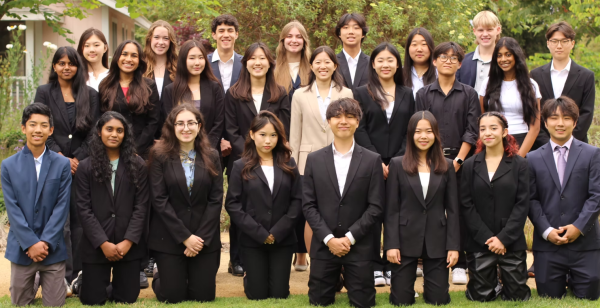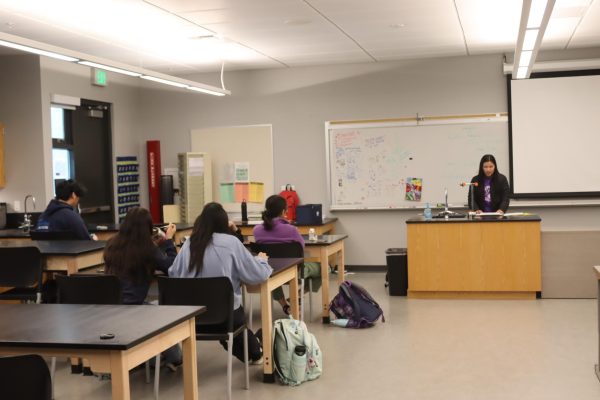Hidden aspects of being bilingual
Language is the doorway to the vast world of culture, expression and communication. Those who are bilingual get to explore twice as much of that vast world, but with it comes some unexpected experiences. Although being bilingual may have assumptions and stereotypes floating around its definition, junior Yukai Qiu said the true experiences of the accompanying skill vary.
For instance, being bilingual does not only include benefits, but there are also strings attached such as doubt and personality division, Qiu said.

“When you are bilingual, you are always worse at one language and it can be a struggle to express yourself in that language,” Qiu said. “You also feel mentally split between the two, which is why your personality often changes when you switch languages. I sometimes feel more American than Chinese, my original nationality.”
Similarly, junior Riko Hirata said others often assume numerous languages equate to more intelligence. However, learning a second language is often a necessity instead of a lighthearted desire, she said.
“Being bilingual does not mean you are smart,” Hirata said. “I personally do not consider myself smart because learning English was a need for living in the United States, not a want. It’s also difficult to speak English immediately after moving to a new country, and there are [inconsistencies] when communicating.”
Being bilingual often emerges from various circumstances, but it generally presents many opportunities such as absorbing twice as much of the world, Hirata said.
“You can be in multiple friend groups, be in more communities and explore twice as much content when you know two languages,” Hirata said.
However, through the growth and discovery that comes with being bilingual, there are many aspects that cannot be outwardly seen. Junior Tamar Hazon said she has heard untrue assumptions about being bilingual.
“I have had people assume that I can quickly switch between Hebrew and English,” Hazon said. “Other times people have thought that I can suddenly start speaking in another language in the middle of a conversation. I actually only speak Hebrew around my family, I don’t even speak Hebrew around my friends who also speak Hebrew. The environment sometimes does not feel appropriate for speaking Hebrew even when I’m with friends who can.”
At the same time, Hazon is also grateful to know two languages, as she said it solidifies her identity and serves as a connection to her family. Although being bilingual comes with struggles and stereotypes, it is a gift that bridges one to their culture, she said. Hazon’s eyes are opened to the beauty so delicately held in culture through language, and the junior said she is grateful for the connections her two languages bring her.
“Because I know Hebrew, I can talk to my family in their native language,” Hazon said. “I can also understand my culture, which is important. A big part of culture is language, so being able to grasp onto that helps me have a deeper connection to my roots. I constantly try to uphold my heritage and improve and through speaking Hebrew, I can stay connected to my culture.”











